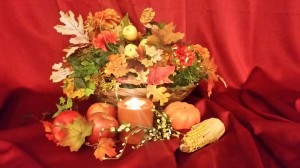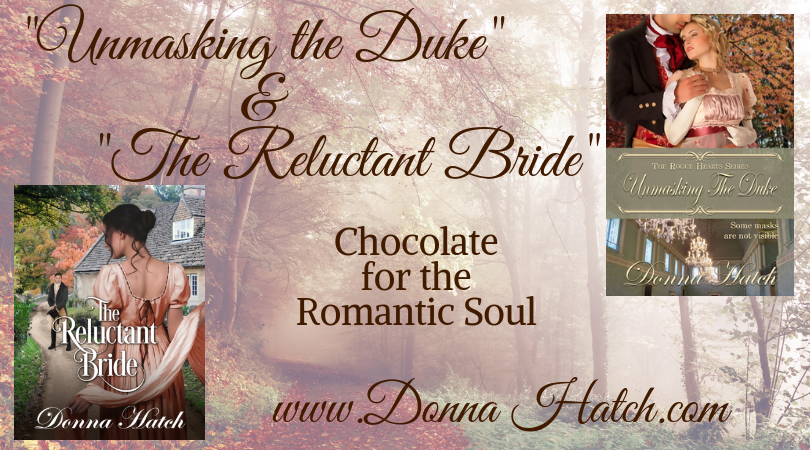 Autumn, also called Fall in the good old USA, is one of my favorite times of the year. To me, autumn is not a sign that nature is dying or even going dormant, it is colorful and sensory-rich and full of life. Leaves turning glorious shades of burgundy, gold, and rust set trees ablaze, and eventually flutter down to blanket lawns. Smells of cinnamon and nutmeg in apple cider and pumpkin pie, wood burning in hearths, rain on leaves, hot cocoa, the loamy aroma of gardens where summer’s flowers are falling asleep that signals the season permeate our homes and outdoors. Coole weather means getting out sweaters and scarves, donning boots, snuggling under blankets, and going for walks or drives to enjoy the splendor of autumn. Autumn is the signal that some of my favorite holidays are right around the corner: Halloween, Thanksgiving, and Christmas, with all of our family traditions.
Autumn, also called Fall in the good old USA, is one of my favorite times of the year. To me, autumn is not a sign that nature is dying or even going dormant, it is colorful and sensory-rich and full of life. Leaves turning glorious shades of burgundy, gold, and rust set trees ablaze, and eventually flutter down to blanket lawns. Smells of cinnamon and nutmeg in apple cider and pumpkin pie, wood burning in hearths, rain on leaves, hot cocoa, the loamy aroma of gardens where summer’s flowers are falling asleep that signals the season permeate our homes and outdoors. Coole weather means getting out sweaters and scarves, donning boots, snuggling under blankets, and going for walks or drives to enjoy the splendor of autumn. Autumn is the signal that some of my favorite holidays are right around the corner: Halloween, Thanksgiving, and Christmas, with all of our family traditions.
 Others to share my love of the season. “To Autumn” is a poem written by English Romantic Poet John Keats, one of the most beloved poets during the Regency Era. He composed this work on 19 September 1819 and published it in 1820 in a volume of Keats’s poetry that included Lamia and The Eve of Saint Agnes. “To Autumn” is his final work in a collection of poems known as Keats’s “1819 odes”. He reportedly composed “To Autumn” after a walk near Winchester one evening in autumn.
Others to share my love of the season. “To Autumn” is a poem written by English Romantic Poet John Keats, one of the most beloved poets during the Regency Era. He composed this work on 19 September 1819 and published it in 1820 in a volume of Keats’s poetry that included Lamia and The Eve of Saint Agnes. “To Autumn” is his final work in a collection of poems known as Keats’s “1819 odes”. He reportedly composed “To Autumn” after a walk near Winchester one evening in autumn.
Season of mists and mellow fruitfulness
Close bosom-friend of the maturing sun
Conspiring with him how to load and bless
With fruit the vines that round the thatch-eaves run;
To bend with apples the moss’d cottage-trees,
And fill all fruit with ripeness to the core;
To swell the gourd, and plump the hazel shells
With a sweet kernel; to set budding more,
And still more, later flowers for the bees,
Until they think warm days will never cease,
For Summer has o’er-brimm’d their clammy cells.Who hath not seen thee oft amid thy store?
Sometimes whoever seeks abroad may find
Thee sitting careless on a granary floor,
Thy hair soft-lifted by the winnowing wind;
Or on a half-reap’d furrow sound asleep,
Drows’d with the fume of poppies, while thy hook
Spares the next swath and all its twined flowers:
And sometimes like a gleaner thou dost keep
Steady thy laden head across a brook;
Or by a cider-press, with patient look,
Thou watchest the last oozings hours by hours.Where are the songs of Spring? Ay, where are they?
Think not of them, thou hast thy music too,
While barred clouds bloom the soft-dying day,
And touch the stubble-plains with rosy hue;
Then in a wailful choir the small gnats mourn
Among the river sallows, borne aloft
Or sinking as the light wind lives or dies;
And full-grown lambs loud bleat from hilly bourn
Hedge-crickets sing; and now with treble soft
The red-breast whistles from a garden-croft;
And gathering swallows twitter in the skies.
 Though this work has been interpreted as a meditation on death, critics regard “To Autumn” as one of the most perfect short poems in the English language. To Autumn went on to become one of the most highly-regarded poems in the English language.
Though this work has been interpreted as a meditation on death, critics regard “To Autumn” as one of the most perfect short poems in the English language. To Autumn went on to become one of the most highly-regarded poems in the English language.
I am not delusional enough to believe I am anywhere near the master of the pen as Keats, nor do I write poetry, but autumn inspired me to write two novellas and one novel set during my favorite time of year. My two novellas are still available–“Unmasking the Duke” and “The Reluctant Bride.”
Happy Autumn!
The last thing Hannah Palmer wants is to flirt with men in a crowded ballroom, but when her sister, Alicia, the Countess of Tarrington, throws a Masquerade Ball in her honor, Hannah can’t say no. Taking shelter behind a disguise, Hannah dances with a delightful masked gentleman, matching him wit for wit, and falling for his charms. When the glorious evening culminates in a kiss, and they remove their masks, Hannah is horrified to discover the man she’s been flirting with all night is the despised Duke of Suttenberg. No matter how charming the duke was at the ball, and how wonderful the kiss, he is the last man she could ever love.
(This novella was originally part of the Autumn Masquerade Regency Collection)
“Unmasking the Duke” is available on Amazon here
Fleeing a looming marriage to a terrifying man, Abby meets a mysterious, yet charming stranger who makes a startling proposition that will either save her or leave her mired in scandal.
“The Reluctant Bride” is available on Amazon here
To Autumn, by John Keats posted first on http://donnahatchnovels.tumblr.com/

No comments:
Post a Comment